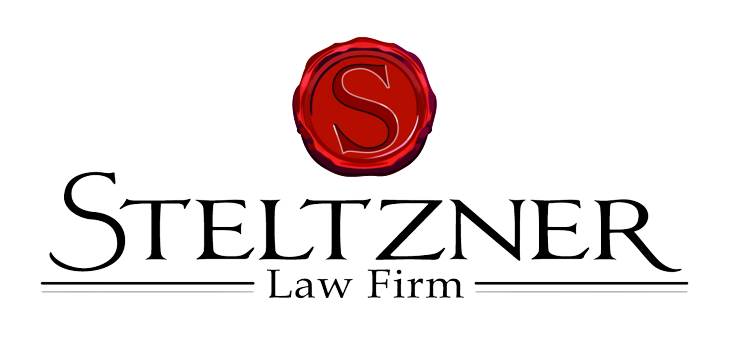Navigating Easements: A Comprehensive Guide to Understand Property Rights
Easements represent a critical element of property rights, involving the legal usage of an individual’s land by another party. In North and South Carolina, understanding these complex arrangements, the regulations governing them, and the potential disputes arising from easements is crucial for both property owners and those benefiting from easement rights. Properly addressing easement issues ensures a peaceful coexistence between parties, prevents conflicts, and maximizes property value.
In this comprehensive guide, we delve into the concept of easements and the corresponding property rights in the context of North and South Carolina’s legal landscape. We’ll explore the various types of easements, the importance of proper easement documentation, and practical recommendations for resolving potential disputes. Additionally, we’ll highlight the indispensable role of a real estate attorney in navigating the complexities of easements and property rights, assuring the protection of your interests and the resolution of conflicts.
Embark on a journey through the world of easements, armed with the knowledge and resources necessary for safeguarding your property rights and satisfaction. Led by an expert legal team at the Steltzner Law Firm, you’ll gain critical insights and tools to empower emotions, sales, and transactions customized to your unique needs. Understanding the realm of easements and property rights represents an essential step in optimizing your North and South Carolina property ownership experience – and you’ll emerge ready to tackle any challenges that may arise.
Understanding the Types of Easements
Easements can be classified into several categories based on the involved parties and intended usage. Familiarizing yourself with these types can aid your comprehension of property rights and their impact on your property. Common easement types include:
- Easements Appurtenant: These involve the use of one property (the servient estate) by the owner of another neighboring property (the dominant estate). A classic example is a shared driveway between two homes. Easements appurtenant typically “run with the land,” meaning they remain in effect regardless of the property changing ownership.
- Easements in Gross: Unlike easements appurtenant, easements in gross do not involve a dominant estate. Instead, they grant usage rights to a specific individual or entity without linking these rights to the ownership of another piece of land. Utility easements allowing power lines to cross a property are a common example. These easements may or may not be transferable to a new owner.
- Prescriptive Easements: Acquired through continuous, open, and uninterrupted use of someone else’s land for a specific time, prescriptive easements function similarly to adverse possession. In North and South Carolina, this time period is 20 years. Prescriptive easements do not provide exclusive rights and can be contested by the property owner.
- Implied Easements: These easements are not explicitly granted by a written document but are inferred by the law based on the property’s history and usage patterns. Implied easements are created to ensure property access or usage based on prior arrangements.
The Importance of Proper Easement Documentation
Accurate and thorough documentation is essential in establishing and maintaining easements, as legal disputes may arise due to ambiguity or insufficient records. To safeguard your rights and prevent conflicts, consider the following:
- Create Written Agreements: While some easements may not legally require written documentation, establishing a formal agreement that outlines the terms, rights, and obligations of all parties can help prevent misunderstandings and protect your interests.
- Record the Easement: In both North and South Carolina, it’s essential to record the easement in the county’s public land records where the property is located. This ensures public notice of the easement and solidifies your legal rights.
- Review Existing Documents: Before purchasing a property or making modifications, thoroughly review any existing easements, deeds, or other land records to identify potential conflicts, restrictions, or legal obligations.
Resolving Easement Disputes
When misunderstandings or disagreements arise surrounding easements, your first priority should be to amicably resolve the conflict, keeping these recommendations in mind:
- Communication: Open and respectful dialogue with the other party can lead to mutually beneficial solutions and prevent escalation.
- Mediation: When communication fails, consider engaging a neutral third-party mediator to help facilitate discussions and work toward resolving the dispute.
- Legal Representation: If all else fails, hiring a real estate attorney to represent your interests and guide you through litigation may be the most effective course of action to protect your rights and reach a fair conclusion.
The Role of a Real Estate Attorney in Easement Matters
A knowledgeable real estate attorney is an invaluable resource when navigating the complexities of easements and property rights. Their expertise can prove invaluable in various aspects, including:
- Drafting Easement Agreements: Attorneys can help create legally binding, written agreements that clearly outline the terms of an easement, ensuring all parties understand their rights and obligations.
- Reviewing Existing Documents: Before finalizing a property purchase, or contemplating improvements, having an attorney review existing documents can identify any potential issues or conflicts and provide an understanding of your rights and responsibilities.
- Navigating Disputes: In cases where disputes arise, an attorney can represent your interests, provide legal guidance, and negotiate or litigate the issue on your behalf.
Conclusion
Gaining a comprehensive understanding of easements and property rights in North and South Carolina is essential for safeguarding your interests and avoiding conflicts. As you navigate this vast and intricate landscape, partnering with a skilled real estate attorney at the Steltzner Law Firm will ensure you have the expert guidance, support, and resources you need to make informed, confident decisions regarding your property investment journey. Embrace the power of knowledge and expert representation to maximize your property rights and resolve any challenges with ease and success.
If you are seeking professional legal advice and solutions for your real estate matters in North Carolina or South Carolina, look no further than Steltzner Law Firm, LLC. Our experienced attorneys and staff are dedicated to providing cost-effective solutions to your legal problems. Contact us today to schedule a consultation with a knowledgeable real estate lawyer.
